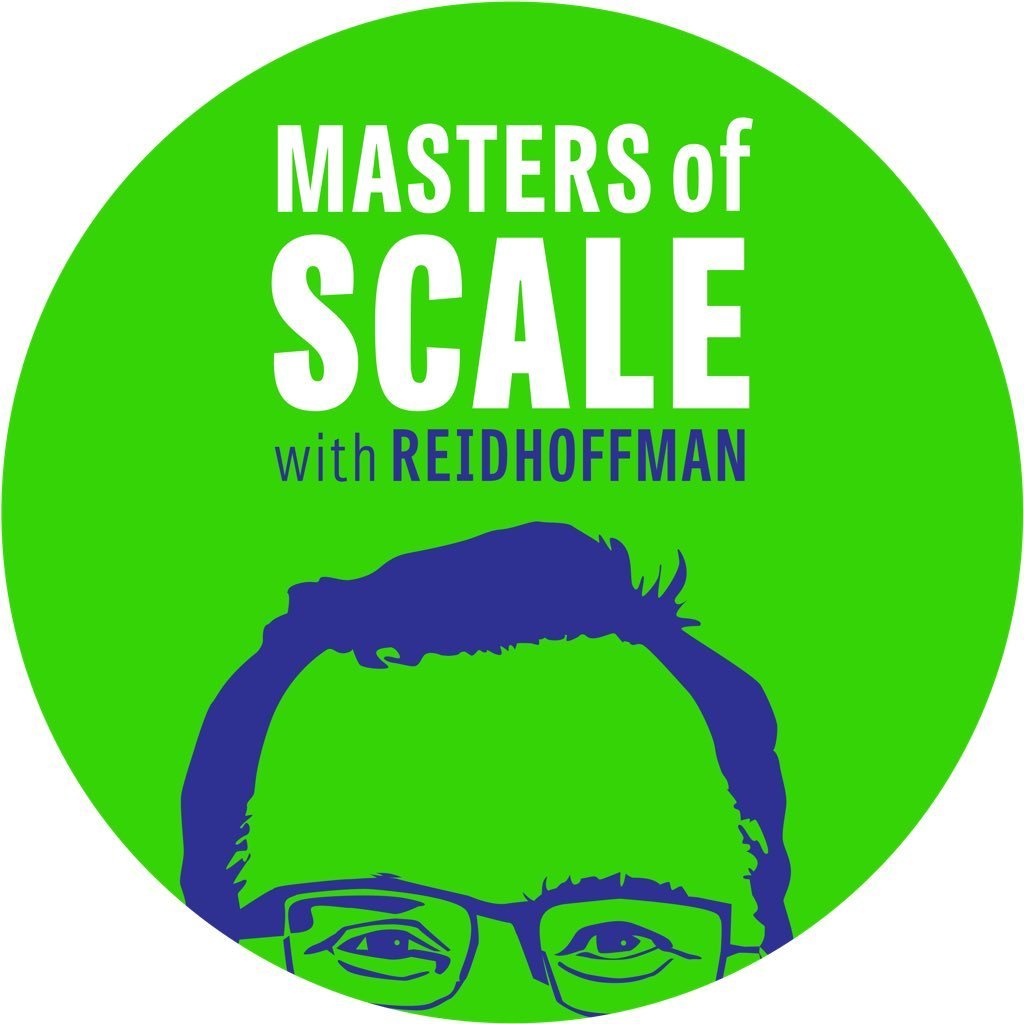Founder Lesson
There's only been two times that I've referenced a podcast in one of my blog posts, but not referenced an exact moment for the reader to listen to hear the lesson. First there was this one and today I'm going to do it again. In both instances the podcast has so many good lessons throughout that I would encourage all of my readers to listen to the podcast from start to finish.
What most caught my eye about today's podcast is that two of my biggest startup influences - Reid Hoffman and Y Combinator - are together on a podcast discussing their core beliefs around validating new startup ideas.
I've probably spent 50% of my time over the last few years working on the topic of idea validation for startups, so this podcast was music to my ears.
Some of my biggest takeaways from the podcast...
- Build for 100 die hard fans. All founders are delusional, so they believe that the first version of their product will be loved by millions of people. These blinders cause the vast majority of founders to focus on scale as they think about the first version of their product. This has many bad implications for their startups from the start. These founders do very little to understand the successes and failures of the past in their space (to better understand analogs). They talk with very few potential customers. The product takes too long to build because it's too big with too many features. And - maybe most importantly - they skip past actually validating the idea. The best founders that I know focus on validating until there is a small group of customers who can't believe that they ever lived without their product...100 die hard fans.
- Don't worry too much if your customer value prop is niche. Some founders might hear "build for 100 die hard fans" and think "this sounds fine academically, but that means that my product will be super niche with a small market." One point that Reid made in the podcast was that the early, raving fans of LinkedIn were not the fans who loved them as they grew. Sam (from YC) said that he's seen this a bunch...often the early fans that get you past phase one aren't the ones that hep you grow. And this is totally fine. When Uber launched it was a very expensive black car service (not a mass market product at all). What matters isn't the size of the niche...what matters is how much the fans are raving.
- Don't underestimate retail politics. I started a local startup called Scoutmob. When we launched in 2010 it was a local discovery app that grew 100% word-of-mouth. When we expanded to our first two new markets (NYC & SF) I was told my someone knowledgeable that all new markets would be only 50% as successful as our home market. It's an effect that lots of franchise companies see...the first market by the founding team is great and then future markets aren't ever as good. It's taken me years to fully understand this dynamic, but I now realize that it's because of retail politics. This is the political term used to describe spending time one-on-one with real voters. What's often mis-understood about "build a small product for a small group of raving fans" is that it's all about the product. Much of this exercise if forcing founders to be face-to-face with real users to truly understand their behavior to help arrive at a truly unique insight. The podcast discusses how Sara Blakely, the founder of Spanx, spent the first few years standing at tables in quiet corners of retail stores evangelizing directly to potential customers. Don't let the scale possibilities of the world wide web be a siren song. Great products still grow by one person telling another person and what fuels that early word-of-mouth growth needs to be kickstarted by the founders talking to one potential customer at a time.
- Passion for the problem is required. Part of this podcast focused on the pastry chef in NYC who invented the cronut. As he describes this (literal) overnight success story it's obvious that he wasn't chasing some big PR pop. He loves his craft and the success of the cronut was an accidental by-product. The more I learn about startups, the more I value a personal obsession/passion that a founder has with a problem (regardless of solution/product). It's the first thing that I look for in new founders.
- Word-of-mouth growth isn't optional. Sam Altman (of YC) says at one point in the podcast that another reason why you need to focus on a product loved by 100 customers is that early word-of-mouth growth is required...and the best way to guarantee that is to have early users love the product. His rationale is that a company can only get so big on paid advertising...organic growth has to have a compounding effect on paid acquisition. If you want your company to get truly large (and grow quickly from the start) then true word-of-mouth growth is required.
- Hard ideas are lovable. The point is made on the podcast that certain ideas capture the imagination in a way that fuels lovable products. The reference was to technically difficult challenges (like going to Mars), but I think about it as topics that just capture the imagination in a way that sounds unbelievable. Examples of this are "mattresses mailed to your home" (Casper), "outsmart traffic" (Waze) & "push a button and get a car" (Uber). What's tricky about these examples is that you have to imagine a world that exists before powerful products were launched. The power of these examples lessens over time because humans tend to adapt to new things quickly, so it takes particularly good judgement/awareness to be able to imagine how people felt about various things before they became mass market.
I've noticed that a big thing that separates average founders from good ones is the ability to know the difference between (a) average customer response and (b) hair-on-fire customer response. For those who have experienced this first-hand, the difference is clear. If you haven't, it's easy to make yourself believe that lukewarm customer feedback is acceptable. It is not (if your goal is to have a high-growth startup).
The best way to optimize for hair-on-fire customer demand is to build for 100 die hard fans.
Sidenote: If you enjoyed this post, you might like this one as well.
Get Right to the Lesson
I’d recommend listening to all of this podcast

Thanks to these folks for helping us all learn faster
Sam Altman (@sama), President of Y Combinator (@ycombinator)
Masters of Scale (@mastersofscale)
Reid Hoffman (@reidhoffman)
Please let me and others know what you think about this topic
Email me privately at dave@switchyards.com or let's discuss publicly at @davempayne.
The best startup advice from experienced founders...one real-world lesson at a time.
